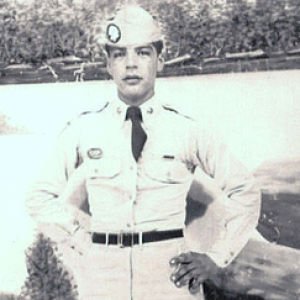When Korean War Veteran Joe Baldonado was posthumously awarded the military’s highest honor, it was only fitting that his younger brother, Charles, was at the White House to accept it.
After all, if it weren’t for the efforts of Charles Baldonado, that day may not have come. Joe Baldonado is now recognized as one of “The Valor 24,” two dozen war veterans wrongfully denied the nation’s highest military honor because of prejudice.
“I did this for my brother,” Charles told the Dispatch shortly after returning from his trip to Washington, D.C. where he received a folded American flag in his brother’s honor.
More about Baldonado
In 1999, Charles began to investigate why his brother who died valiantly fighting for his country in Korea on Nov. 25, 1950 did not receive the military’s highest honor.
He found out Joe was recommended for the Medal of Honor in 1950 by a fellow officer who had been in combat but could not find any reason why it was downgraded to the military’s second highest award, The Distinguished Service Cross. The family received that award in the old Fort Ord in Monterey.
During his investigation, Charles said he ran into several roadblocks but would always pick up the trail whenever some new information into his brother’s case was uncovered
“At the same time I was investigating, someone else was doing the same thing for a friend,” said Charles, who shared that Joe enjoyed music. “He would play the guitar and sing.”
Gilroy connection
Charles also cleared up the mystery of his family’s Gilroy connection.
The Baldonado family moved to Gilroy in 1944 and, even after Joe joined the service in 1948, remained in the area until 1958. Charles went to Brownell Junior High School but, like his older brother, did not move on to Gilroy High School and instead worked in the fields.
“My dad got sick so I went to work,” said Charles, who now resides in Apple Valley but remembers growing up in the Garlic Capital.
President Obama mentioned Cpl. Joe Baldonado was the only one of “The Valor 24” who is still considered missing because his remains were never identified.
Bucket list
Charles said he has one more thing to accomplish – as part of his bucket list for his brother – and that’s bringing him home.
“The next one on the bucket list is to bring him back and have him buried here on American soil,” Charles said with conviction in his voice.
Charles submitted his own DNA to the military, so “hopefully one day they will find him,” he said. “The fact that we don’t have closure it still hurts. It’s been 64 years, and we’re still looking for him.”














